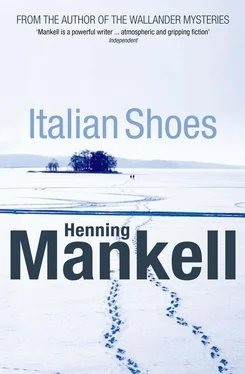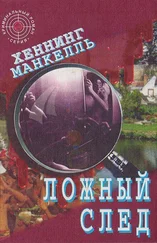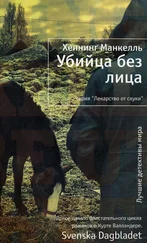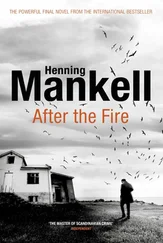Always scramble up again when you fall down. Never stay down. But that was precisely what I had done. I had stayed down after making my big mistake.
I watched them playing, and soon picked out a very little boy, the smallest of them all, albeit fat — or perhaps he was wearing more protective clothing than the rest? But he was the best. He accelerated quicker than any of the others, dribbled the ball with his stick without even needing to look at what he was doing, feinted with astonishing speed, and was always in exactly the right position to receive a pass. A fat little lad who was a faster skater than any of the others. I tried to imagine which of the skaters out there was most like me at their age. Which one would I have been, with my much heavier ice-hockey stick? Certainly not the little boy who could skate so fast and had a much better ball sense than most. I would have been one of the also-rans — a blueberry that could be picked and replaced with any other blueberry around.
Never stay down if you don’t have to.
I had done what you should never do.
I went back to the hotel. There was no night porter. The room key opened the outside door. Harriet had gone to bed. One of the brandy bottles was standing on her bedside table.
‘I thought you must have run away,’ she said. ‘I’m going to sleep now. I’ve taken a dram and a sleeping pill.’
She turned on to her side, and was soon asleep. I cautiously took hold of her wrist and measured her pulse: 78 beats per minute. I sat down on a chair, switched on the television, and watched a news broadcast with the sound turned down so low that not even my eavesdropping ears were able to hear a word of what was said. The pictures seemed to be the same as usual. Bleeding, tortured, suffering specimens of humanity. And then a series of well-dressed men making endless pronouncements, displaying no sign of sympathy, only arrogant smiles. I switched off the television and lay down on the bed. I thought about the young female police officer with the blonde hair before falling asleep.
At one o’clock the next day we were approaching Hudiksvall. It had stopped snowing, and there was no ice on the roads. Harriet pointed out a road sign to Rångevallen. The surface was terrible, destroyed by monster tree-felling machines. We turned off again, this time on to a private road. The forest was very dense. I wondered what kind of a person Harriet’s daughter was, living like this so remotely in the depths of the forest. The only question I had put to Harriet during our journey was whether Louise had a husband or any children. She didn’t. Logs were stacked in various appropriate places by the roadside. The road reminded me of the one that had led to Sara Larsson’s house.
When we eventually came to a clearing, I saw several ruined buildings and dilapidated fences. And a large caravan with a tented extension.
‘We’re here,’ said Harriet. ‘This is where my daughter lives.’
‘In the caravan?’
‘Can you see any other building with a roof that hasn’t collapsed?’
I helped her out of the car, and fetched her walker. There was the sound of an engine coming from what might once have been a dog kennel. It could hardly be anything else but a generator. There was a satellite dish on the roof of the caravan. We stood there for several minutes without anything happening. I felt an intense desire to return to my island.
The caravan door opened. A woman emerged.
She was wearing a pink dressing gown and high-heeled shoes. It seemed to me anything but easy to estimate her age. She had a pack of cards in one hand.
‘This is my daughter,’ said Harriet.
She pushed her walker through the snow to where the woman was trying to stand steadily on her high heels.
I stayed where I was.
‘This is your father,’ said Harriet to her daughter.
There was snow in the air. I thought of Jansson, and wished to goodness that he could have come to collect me in his hydrocopter.
My daughter doesn’t have a well of her own.
Needless to say, there was no running water in her caravan; nor was there any sign of a pump anywhere on the site. In order to fetch water, I had to follow a path down the slope, through a copse, and eventually to another deserted farm with glassless windows and suspicious crows perched on the chimneys. In the yard was a rusty pump which produced water. As I raised and lowered the handle, the rusty iron screamed in pain.
The crows were motionless.
This was the first thing my daughter had asked me to do for her. To fetch two buckets of water. I’m just thankful that she didn’t say anything else. She could have yelled at me and told me to clear off, or she could have been overcome with joy at finally meeting her father. But all she did was ask me to fetch some water. I took the buckets and followed the path through the snow. I wondered if she would normally go herself in her dressing gown and high-heeled shoes. But what I wondered most of all was what had happened all those years ago, and why nobody had told me anything about it.
It was 250 yards to the abandoned farm. When Harriet said that the woman standing by the caravan was my daughter, I knew immediately that she was telling the truth. Harriet was incapable of lying. I searched my memory for the moment when she must have been conceived. As I trudged through the snow, it struck me that the only possibility was that Harriet had discovered she was pregnant after I’d disappeared. So the moment of conception must have been a month or so before we parted.
I tried hard to remember.
The forest was silent. I felt like a gnome making his way through the snow in some ancient fairy tale. We had only ever made love on her sofa bed. So that was where my daughter must have been created. When I left for America and Harriet had waited for me in vain at the airport, she would have known nothing about it. She only became aware of the situation later, and I had vanished by then.
I pumped up the water. Then I stood the buckets by the side of the pump and went into the abandoned house. The front door was rotten — it collapsed as I nudged it open with my foot.
I wandered round the rooms, which smelled of mould and rotten wood. It was like examining a shipwrecked liner. Bits of newspaper protruded from behind torn wallpaper. A page of Ljusnan from 12 March 1969: A car crash took place on ... The rest of the article was missing. In this picture, Mrs Mattsson is displaying one of her most recent tapestries created with her customary loving care ... The picture was torn, Mrs Mattsson’s face was still visible, and one of her hands, but no tapestry. In the bedroom was what was left of a double bed. It seemed to have been chopped to pieces with an axe. Somebody had vented his fury on the bed and made certain that it could never ever be slept in again.
I tried to conjure up images of the people who had lived in the house, and one day left it, never to return. But their faces were averted. Abandoned houses are like empty showcases in a museum. I left the building and tried to come to grips with the thought that I had acquired a daughter, out of the blue, who lived in the forest to the south of Hudiksvall. A daughter who must be thirty-seven years of age, and lived in a caravan. A woman who walked through the snow in a pink dressing gown and high-heeled shoes.
One thing was clear to me.
Harriet had not prepared her for this. She knew that she had a father, of course, but not that I was him. I was not the only one to be surprised. Harriet had astounded us both.
I picked up the buckets and started to make my way back. Why was my daughter living in a caravan in the depths of the forest? Who was she? When we shook hands, I hadn’t dared to look her in the eye. She was surrounded by a strong smell of perfume. Her hand was sweaty.
Читать дальше












